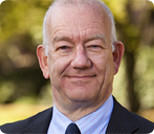The Fallacies of the Investment Theory of Politics
Very often people of a particular political or ideological persuasion will strongly advocate an idea or analysis that they believe supports their general position when on closer examination it actually undermines it. One classic instance of this is the idea of political investment, or, as it is sometimes called, the investment theory of politics.
This is a theory that is popular on the socialist left (although it draws on arguments and a way of thinking commonly associated with the free market side of politics). However, the conclusions its advocates typically derive from it simply do not follow; in fact, logic and common sense suggest very different ones. (This kind of wrongheadedness is found across the political spectrum. I could also give examples of both conservatives and liberals making similar errors.)
Special Interests
The investment theory of politics is a response to a puzzle that emerged soon after mass democratic politics became widespread in the late 19th century. The early advocates of modern democracy had assumed that once everyone had the vote, political argument and debate, and the actual policies that followed, would reflect the interests and opinions of the great majority of the population rather than those of an elite, whether aristocratic, clerical, or commercial. (Their opponents also believed this would happen; they just didn’t welcome that prospect.)
However, it soon became very obvious that this was not the case. The policies followed by governments frequently reflected the interests of elites, minorities, and special interests rather than those of the majority. Even more strikingly, there were areas where popular opinion was on one side of an argument, elite opinion on another, and it was the elite view that prevailed, for a long time at least. The most dramatic departure from expectations happened when something that was of great interest and concern to the majority was simply ignored and did not even feature in political debate.
There are many examples of these phenomena. In the United Kingdom, for example, for many years opinion polls showed a large and persistent majority in favor of capital punishment. However, there was an overwhelming majority in Parliament against this position. Moreover, the question of capital punishment was not even a significant one at general elections, since both major parties were opposed to it. In the United States, for a long time there has been a popular majority for a policy of economic nationalism and protectionism, but until very recently this was hardly voiced in political arguments and elections.
People like Dick Gephardt were very much in the minority. On both sides of the Atlantic, popular opinion has been very skeptical of an interventionist foreign policy, often vociferously so, but this has not been reflected in political debate and public policy (until after the event, that is). You may be glad in some instances that the popular view did not get effected in policy or even feature in debates while regretting it in others, but the question is: in a democracy with one person, one vote, why does this happen? Why are the views and concerns of the majority not always reflected in political argument and policy? (It is not a matter of particular countries either, as this pattern is found in all modern representative democracies.)
The Proposed Fix
The investment theory of politics, which is commonly associated with the “left,” explains this by applying analytical insights from the “right.” One of the clearest expositions comes from Thomas Ferguson, emeritus professor at University of Massachusetts Boston in his book The Golden Rule.
The essential elements of the argument are these. In the first place, there is a significant cost to engaging in political activity. While some of this is monetary, the main part is opportunity cost. Quite simply, activities such as attending meetings, being an active member of a campaigning organization or party, canvassing, and knocking on doors (and much else besides) all take time — time that could have been spent doing something else. For most people, this cost is high. As Oscar Wilde wittily observed, the problem with socialism (and, I would say, politics of all kinds) is too many meetings.
Moreover, to the extent that this activity benefits any particular person they will gain from it whether they participate in it or not. So political participation is, in economic terms, a public good. To make things worse, one person’s participation makes only a very small contribution to the overall outcome.
How important is one person to the success or failure of a federal election campaign or even a statewide or local one? Finally, any benefit from the political activity (through, for example, a change in legislation) that accrues to the majority of the population is going to be spread out very thinly so that each individual person will only get a small benefit, which they will often have to share with both nonparticipants and many of their opponents.
This all means that for the great mass of ordinary people, the incentive to be politically active and engaged is very weak and there are strong incentives to free ride and let others do the heavy lifting. Suppose 10 million people campaign for a measure that will make the United States as a whole better off by $2 billion annually. Simple math shows that if shared out evenly, this would make each U.S. citizen better off by about $6.66. However, this kind of calculation does not apply for small, concentrated groups of people. Above all, it does not apply to the wealthy.
Wealthy individuals and families have a very different set of incentives. For them, a particular policy can have massive effects, either positive or negative. Another way of putting that is that for them, the costs or benefits are highly concentrated, rather than being spread out over the entire population or a large part of it. In addition, because there are fewer of them the time it takes to act collectively and engage in politics is relatively low. It will take money (to employ agents, for example), but by definition that is something they have a lot of.
Consequently, wealthy people or organizations (which could be firms, labor unions, or large third-sector organizations such as foundations) have a very strong incentive to try to influence, or capture, the political process.
The Capture
Take the case of U.S. sugar-producer protectionism. By keeping the cost of sugar higher than it would otherwise be, this imposes significant costs on the U.S. population as a whole but the cost for each individual American is low enough that it is not worth organizing to stop it. The benefit, however, in the shape of higher incomes for sugar producers is very concentrated, with most of it going to a very small number of families (less than 20) and the largest share going to just 1 family (the Fanjul family).
All of this makes use of an economic analysis usually associated with the free market “right”; in particular, it uses the arguments of public choice. The conclusion, for Ferguson and others, is that some wealthy individuals and corporate bodies (which can include things like labor unions) have a strong incentive to invest in politics — that is, to donate to candidates and parties, fund campaigns, support think tanks and advocacy organizations, seek to influence public opinion through the media and advertising, and much else.
The conclusion is that while this does not always work (in the sense of realizing its objectives), it is these political investors who will control the content and direction of politics at any given time rather than the mass of voters. If something is of concern to ordinary voters but a matter of indifference to most political investors, then it will not feature in political argument.
If there is broad agreement around a particular policy position among political investors, both parties will support it and it will be very hard to get a critical or alternative view any hearing. Conversely, the theory argues that the divisions we do see reflect divisions of interest (and also ideology) within the class of political investors rather than divisions that exist in the wider public. If they do match popular divisions, that has a coincidental quality to it.
The big, systemic conclusion is that the political process will usually be captured and manipulated in the interests of the rich and privileged special interest groups, who will then argue among themselves as to the exact form politics should take. It will not usually reflect the concerns of the great majority, the divisions among that majority, or (except adventitiously) their interests.
So far, many free market advocates will be nodding and saying, ”Yes, that makes sense; I can see that.” However, at this point, the argument goes: “Politics is controlled by the rich, and this is always likely to happen because of basic incentives facing ordinary people and the wealthy. So we need more of it.” At this point, my own reaction and that of many is “Whoa! Could you run that by me again, please?”
Reduction in Politics
In fact, the obvious conclusion to draw is that the scope of politics should be reduced. The more that life and affairs are governed by the political process, the greater is the opportunity for special interests, above all the wealthy, to gain control and use it for their benefit. What you should look to do is reduce the scope of politics, the range of matters that politics is concerned with.
The investment theory of politics shows that this will actually increase the agency of the average person and reduce that of the wealthy, which is exactly the opposite of the popular perception.
To be fair, it does generate other conclusions, notably that politics should be as decentralized and localized as possible (because this reduces the cost of political participation for ordinary people and limits the mischief that political investors can do) and that you should look at ways of reducing the cost of political participation (typically by combining the public good of participation with a private one such as leisure or entertainment).
What you should not do under any circumstances is what Ferguson advocates, which is for government to subsidize political activity. A moment’s reflection should lead you to realize that, by his own theory, this would be disastrous because it would give wealthy special interests an even greater control of politics and its wealth-extracting and wealth-redistributing activities.
Frequently, arguments and analyses made by people with a particular perspective do not actually lead to or support the conclusions they want to draw from them. This is a classic case. The argument that politics is controlled by some of the wealthy and run for their benefit is largely correct, but the conclusion should be that we should restrict their opportunity to do this by limiting politics and government, not that we should expand them.











